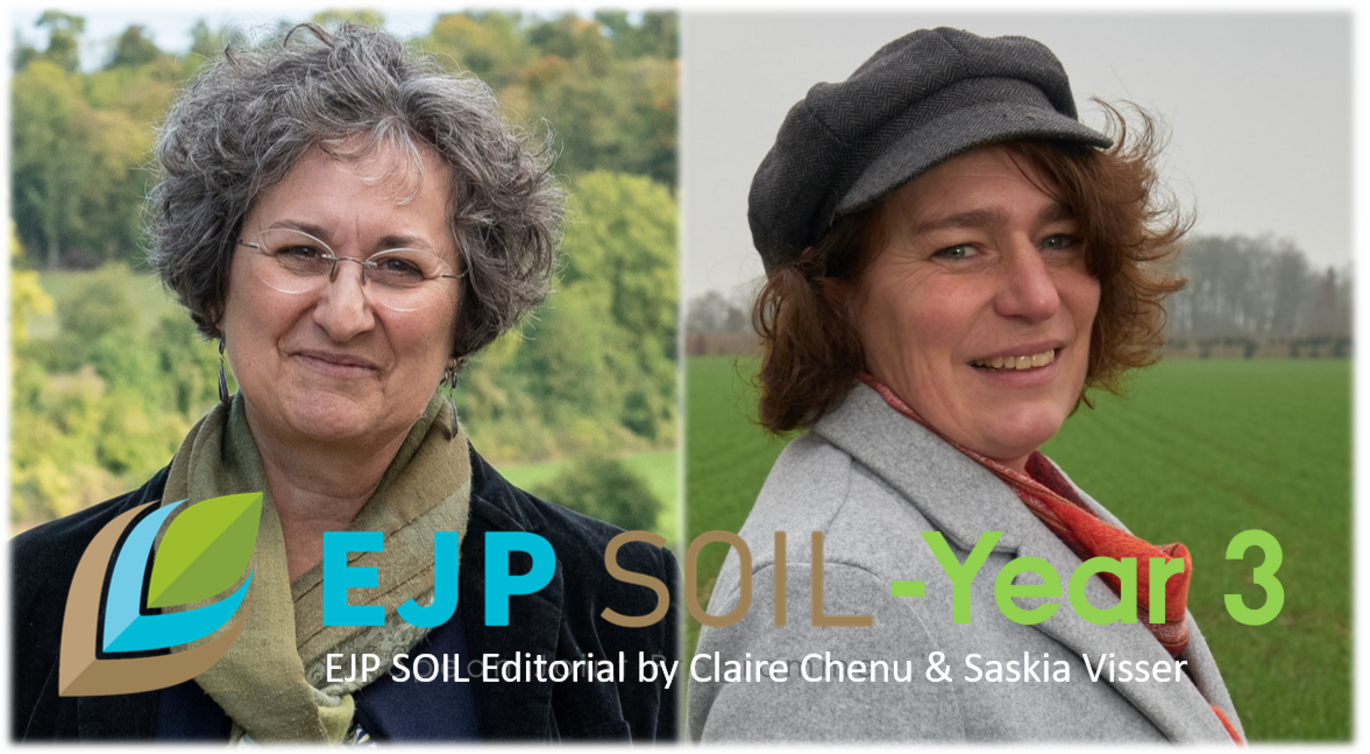EJP SOIL Newsletter editorial - March 2022
The emergence of soils in the political field is impressive. This raises many questions and challenges scientists in developing and sharing the needed knowledge and contributing to the public debate on soil management and soil related policies.

Soils are – at last – very present and very visible in EU policies. Soils are present in many components of the Green Deal, with ambitious targets being proposed. A communication on sustainable carbon cycles (COM(2021) 800) was published last December and aims to upscale carbon removal solutions that capture CO2 from the atmosphere and store C in the long term, in particular in ecosystems through nature protection and through carbon farming. The new European Soil Strategy (COM(2021) 699) was published last November and aims that all European soils are healthy in 2050, with a range of objectives and actions proposed.
In addition, a Call for evidence has been launched in February 2021 by the European Commission in relation to the project of a Soil Health Law to be proposed in 2023. Furthermore, the European Soil Observatory has been launched by the JRC, and the Mission “A soil deal for Europe” is being implemented.
This emergence of soils in the political field is impressive and raises many questions. It challenges us scientists, as much knowledge is needed to be developed and shared.
Faced with all this attention for soils, the EJP SOIL puts a lot of effort in two types of actions:
- Knowledge development: Regarding research, we are developing the knowledge needed to underlie such policies, such as indicators of soil biodiversity, models for ecosystem services, indicators for trade-offs between ecosystem services, evaluation of agricultural management options in their effect on soil health, high throughput methods to characterize soils, harmonized soil information and evaluation of carbon farming schemes.
- Knowledge sharing: we contribute to the public debates on soil management and soil related policies. EJP SOIL scientists are often solicited to participate to national scale or EU scale webinars or panel discussions. Our WP8 colleagues are organizing policy-oriented workshops on, e.g., peatland management or land abandonment. In our national HUBs, EJP SOIL shares research outcomes and discuss ways forward. EJP SOIL has recently contributed to the call for evidence launched by the commission in relation to the Soil Health Law project.
We aim to continue to be involved in these two lines of action. Both are important, they are distinct. Much is going on at the same time, and it is sometimes difficult for a scientist to keep up with what is going on, both in research and in the other arenas. Furthermore, finding the scientific answers may not align in time with the request or needs for knowledge. We trust that a network like that of EJP SOIL gives strength and stimulates us soil scientist, not only to develop the needed knowledge, but also to engage in a further dialogue with soil stakeholders, even when answers are not all available. Through communication and open dialogue, we (as scientists) can support sustainable policy development in order to keep the European soils healthy.
Claire and Saskia
…
For more information:
EJP SOIL’s contribution to the Soil Health call for evidence. For short article on highlights with a brief overview, click here.
EJP SOIL Coordinator: Claire CHENU, INRAE - e-mail: ejpsoilcoord@inrae.fr
EJP SOIL Deputy coordinator: Saskia Visser, Wageningen Research - e-mail: saskia.visser@wur.nl
Website: www.ejpsoil.eu